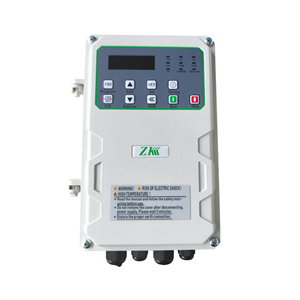The Significance of Solar-Powered Water Pump Inverters in Daily Life
In an era where sustainability and energy efficiency are paramount,solar-powered water pump inverters have emerged as a transformative technology, bridging the gap between renewable energy and practical daily applications. These innovative devices,which convert solar energy into usable power for water pumps,are revolutionizing how communities access water—especially in remote or off-grid areas.Their impact extends far beyond mere convenience;they are reshaping agriculture, improving livelihoods,and contributing to global environmental goals.
Empowering Agriculture and Food Security
Agriculture remains the backbone of many economies,particularly in developing regions.However,traditional irrigation methods often rely on diesel-powered pumps or grid electricity,both of which are costly,environmentally damaging,and unreliable in areas with limited infrastructure. Solar-powered water pump inverters address these challenges head-on. By harnessing sunlight,they provide a consistent and renewable energy source to drive water from wells,rivers,or reservoirs to fields.
Farmers using solar pumps report significant cost savings,as they eliminate fuel expenses and reduce dependence on erratic grid power. For example,in sub-Saharan Africa, where over 60% of the population depends on agriculture,solar pumps have enabled smallholder farmers to irrigate crops year-round,boosting yields and incomes.This technology also supports precision agriculture by allowing controlled water distribution,minimizing waste,and optimizing crop health.
Enhancing Access to Clean Water
Access to clean water is a fundamental human right,yet millions worldwide still struggle to secure it.Solar water pump inverters are playing a critical role in addressing this crisis.In rural communities, these systems pump groundwater to storage tanks or directly to households,ensuring a reliable supply of safe drinking water.This is particularly vital in regions plagued by droughts or contaminated water sources.
In India,initiatives like the PM-KUSUM scheme have deployed solar pumps to thousands of villages,reducing the burden on women and children who traditionally spend hours fetching water. Similarly,humanitarian organizations use solar-powered systems in refugee camps to provide immediate water access during emergencies.By reducing reliance on manual labor and fossil fuels,these inverters empower communities to focus on education, healthcare,and economic activities.
Environmental and Economic Benefits
The environmental advantages of solar water pump inverters are undeniable.Unlike diesel pumps,they produce zero emissions, curbing air pollution and mitigating climate change.A single solar pump can offset up to 5 tons of CO₂ annually—equivalent to planting 100 trees.Additionally,solar energy is abundant and free, making these systems a cost-effective long-term investment. Governments and NGOs worldwide are incentivizing their adoption through subsidies and financing programs,recognizing their role in achieving Sustainable Development Goals (SDGs) like clean energy (SDG 7) and clean water (SDG 6).
Resilience in the Face of Climate Change
As climate change intensifies,water scarcity and extreme weather events are becoming more frequent.Solar water pump inverters offer a resilient solution.Their ability to operate independently of the grid ensures uninterrupted water access during power outages or natural disasters. In drought-prone regions like California and Australia,farmers use solar pumps to maintain irrigation even as traditional water sources dry up.The technology’s modular design also allows for scalability, enabling users to expand systems as needs grow.
Innovation Driving Accessibility
Recent advancements in solar pump inverter technology are making these systems more accessible and user-friendly. Features like Maximum Power Point Tracking (MPPT) optimize energy harvest from solar panels,while smart controllers enable remote monitoring via mobile apps. Battery storage integration ensures water pumping continues overnight or on cloudy days.Companies are also designing lightweight, portable systems for nomadic communities and disaster relief scenarios.
Conclusion
Solar-powered water pump inverters are more than just a technological marvel—they are a lifeline for millions.By transforming sunlight into a reliable water supply,they foster economic growth, improve health outcomes,and protect the planet.As global demand for sustainable solutions grows,this technology will remain at the forefront of efforts to build a water-secure and climate-resilient future.
Call to Action: Explore our range of solar water pump inverters and join the movement toward sustainable water management. Contact us today to learn how you can implement this life-changing technology in your community.




